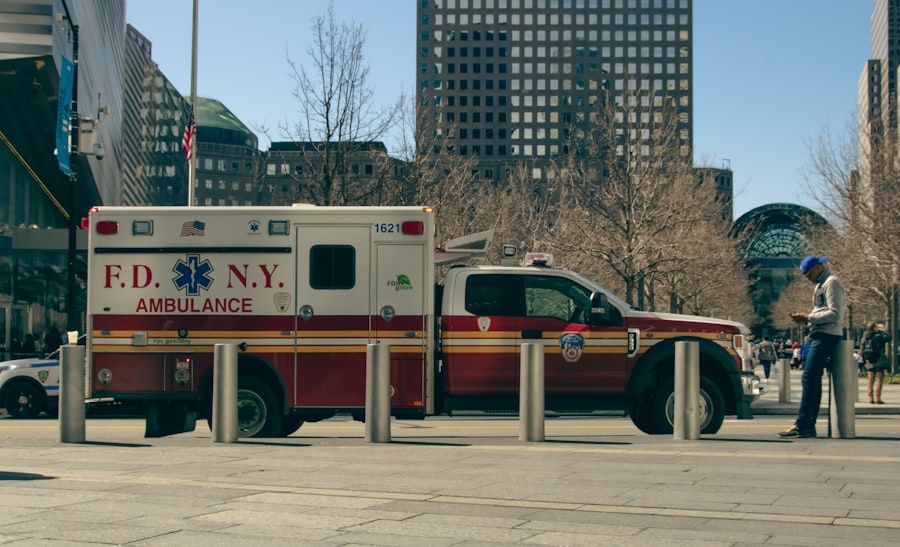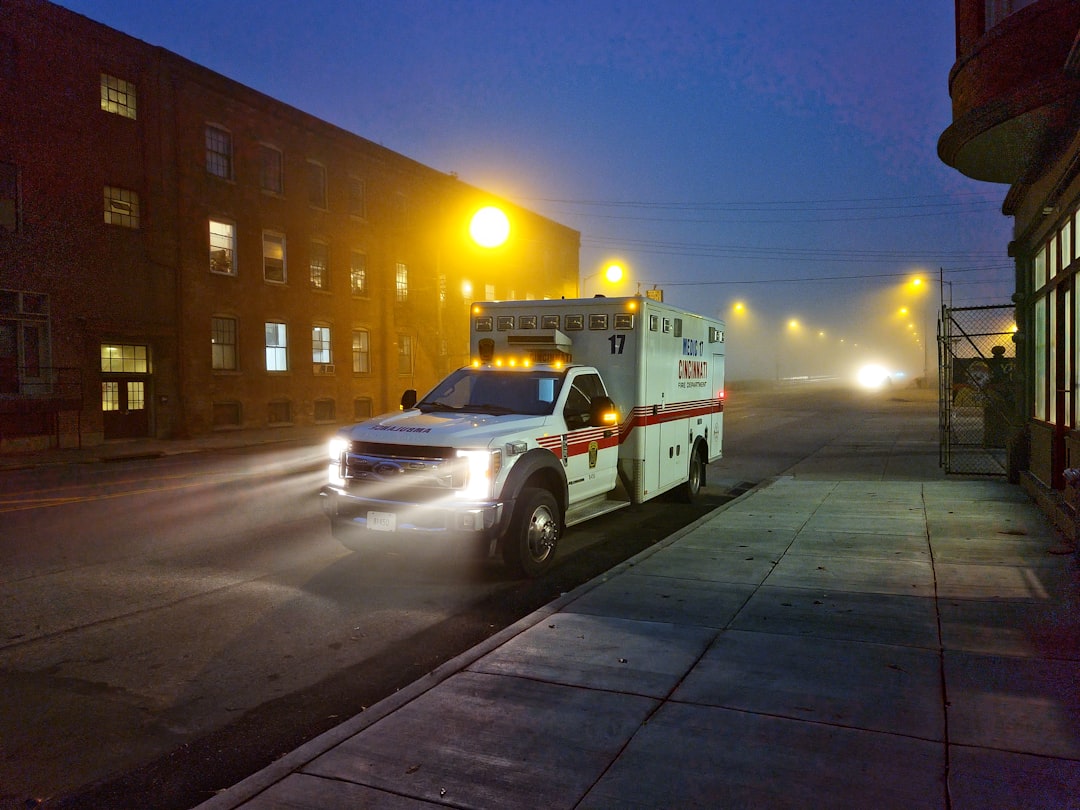Las Vegas, a city renowned for its vibrant nightlife, extravagant entertainment, and bustling tourism, is not immune to the unpredictability of emergency incidents. As a resident or visitor, you may find yourself in situations that require immediate attention and response. From natural disasters to man-made crises, understanding the landscape of emergency incidents in Las Vegas is crucial for ensuring safety and preparedness.
The city’s unique environment, characterized by its desert climate and high population density, presents specific challenges that necessitate a robust emergency management framework. In recent years, Las Vegas has experienced a range of emergencies that have tested the resilience of its infrastructure and the effectiveness of its response systems. Whether it’s a sudden flash flood, a fire in one of the many high-rise hotels, or a mass casualty event, the city’s ability to respond swiftly and efficiently can mean the difference between chaos and order.
As you navigate through this vibrant city, being aware of the potential emergencies and the systems in place to handle them can empower you to make informed decisions and stay safe.
Key Takeaways
- Las Vegas experiences a variety of emergency incidents, including natural disasters, accidents, and public health crises.
- Major causes of emergency incidents in Las Vegas include extreme weather, traffic accidents, and public health emergencies such as pandemics.
- Response and management of emergency incidents in Las Vegas involve coordination among various agencies and organizations to ensure effective and timely assistance to those in need.
- Emergency incidents have a significant impact on the Las Vegas community, including economic, social, and psychological effects.
- Prevention and preparedness for emergency incidents in Las Vegas are crucial for minimizing the impact and ensuring the safety of residents and visitors.
Types of Emergency Incidents in Las Vegas
Natural Disasters
The region’s arid climate and occasional heavy rainfall make natural disasters a significant concern. Flash floods can occur with little warning, overwhelming roadways and causing hazardous conditions. As a resident or visitor, it’s essential to be aware of weather alerts and understand the risks associated with sudden downpours.
Man-Made Emergencies
In addition to natural disasters, Las Vegas is also susceptible to man-made emergencies. These can range from fires in commercial establishments to active shooter situations in crowded venues.
Comprehensive Approach to Emergency Preparedness
The city’s high concentration of tourists makes it a potential target for various threats, necessitating a comprehensive approach to emergency preparedness. Understanding these types of incidents can help you recognize warning signs and take appropriate action when necessary.
Major Causes of Emergency Incidents in Las Vegas

The causes of emergency incidents in Las Vegas are multifaceted, stemming from both environmental factors and human activities. One major contributor is the city’s rapid growth and urbanization. As more people flock to Las Vegas for work and leisure, the strain on infrastructure increases, leading to potential failures in systems designed to protect public safety.
Overcrowding can exacerbate emergencies, making evacuation and response efforts more challenging. Another significant cause is the region’s climate. The desert environment presents unique challenges, including extreme heat and dry conditions that can lead to wildfires.
Additionally, the occasional heavy rains can result in flash flooding, particularly in areas with poor drainage systems. Understanding these causes allows you to appreciate the complexities involved in managing emergencies in such a dynamic environment.
Response and Management of Emergency Incidents in Las Vegas
| Emergency Incident | Response Time | Number of Responders | Incident Management |
|---|---|---|---|
| Fire | 5 minutes | 20 | Firefighters coordinate with local authorities |
| Medical Emergency | 8 minutes | 15 | Emergency medical technicians provide on-site care |
| Natural Disaster | 15 minutes | 50 | Emergency management agencies coordinate with state and federal authorities |
When an emergency incident occurs in Las Vegas, a well-coordinated response is critical. The city has established a comprehensive emergency management system that involves multiple agencies working together to ensure public safety. First responders, including police, fire departments, and emergency medical services, are trained to handle various scenarios effectively.
Their swift action can mitigate the impact of an incident and save lives. Management of emergencies also involves communication with the public. During an incident, you may receive alerts through various channels, including social media, text messages, and local news broadcasts.
Staying informed is vital; knowing where to find reliable information can help you make decisions that prioritize your safety and that of others around you. The city’s commitment to transparency during emergencies fosters trust and encourages community cooperation.
Impact of Emergency Incidents on the Las Vegas Community
Emergency incidents can have profound effects on the Las Vegas community, both immediately and in the long term. In the aftermath of an incident, residents may experience physical damage to property, loss of life, or emotional trauma. The psychological impact can linger long after the event has passed, affecting individuals’ mental health and overall well-being.
As someone who lives or spends time in Las Vegas, recognizing these effects is essential for fostering resilience within the community. Moreover, emergency incidents can disrupt local businesses and tourism, which are vital components of Las Vegas’s economy. A significant event can deter visitors from coming to the city, leading to financial losses for businesses reliant on tourism.
Recovery efforts often require collaboration among community members, local government, and businesses to rebuild and restore normalcy. Understanding these impacts emphasizes the importance of community solidarity during challenging times.
Prevention and Preparedness for Emergency Incidents in Las Vegas

Prevention and preparedness are key components in mitigating the effects of emergency incidents in Las Vegas. As an individual, you play a crucial role in this process by staying informed about potential risks and taking proactive measures to protect yourself and your loved ones. Familiarizing yourself with emergency plans for your home or workplace can significantly enhance your readiness for unexpected situations.
Local authorities also engage in extensive preparedness initiatives aimed at educating residents about emergency response protocols. Community workshops, drills, and informational campaigns are designed to equip you with the knowledge needed to respond effectively during an emergency. By participating in these programs, you not only enhance your own preparedness but also contribute to a culture of safety within your community.
Collaboration and Coordination Among Emergency Response Agencies in Las Vegas
Effective management of emergency incidents relies heavily on collaboration among various response agencies in Las Vegas. The city has established partnerships between local law enforcement, fire departments, medical services, and federal agencies to ensure a unified approach during crises. This collaboration allows for resource sharing and coordinated efforts that enhance overall response capabilities.
As a member of the community, you may witness these agencies working together during drills or actual emergencies. Their ability to communicate seamlessly can significantly improve response times and outcomes. Understanding this collaborative framework helps you appreciate the complexity of emergency management and reinforces the importance of teamwork in safeguarding public safety.
Future Outlook for Managing Emergency Incidents in Las Vegas
Looking ahead, the future of managing emergency incidents in Las Vegas will likely involve continued advancements in technology and strategy. As new challenges emerge—whether from climate change or evolving threats—emergency management agencies will need to adapt their approaches accordingly. Innovations such as improved communication systems, data analytics for predictive modeling, and enhanced training programs will play pivotal roles in shaping effective responses.
Moreover, community engagement will remain a cornerstone of successful emergency management. As you continue to participate in preparedness initiatives and stay informed about local resources, you contribute to building a resilient community capable of facing future challenges head-on. The collective effort between residents and emergency response agencies will be vital in ensuring that Las Vegas remains a safe place for all who live in or visit this dynamic city.
In conclusion, understanding emergency incidents in Las Vegas is essential for anyone navigating this vibrant city. By familiarizing yourself with the types of incidents that may occur, their causes, and how they are managed, you empower yourself to respond effectively when faced with unexpected situations. Your awareness and preparedness not only enhance your safety but also contribute positively to the resilience of the entire community.


